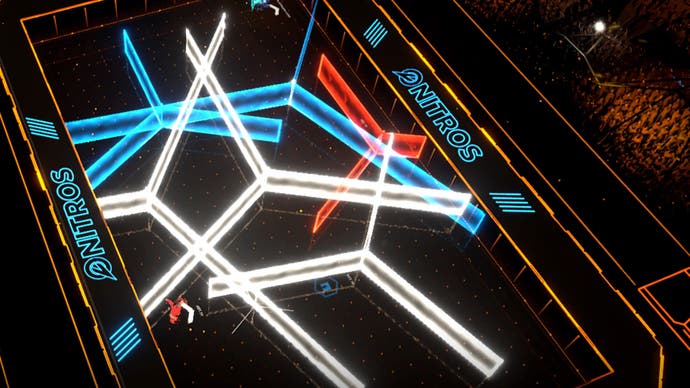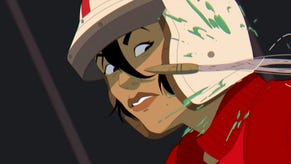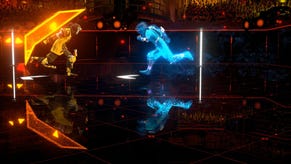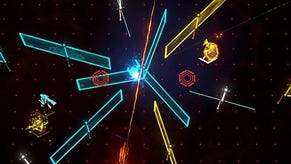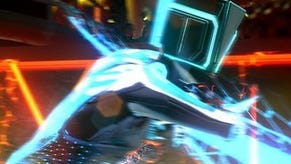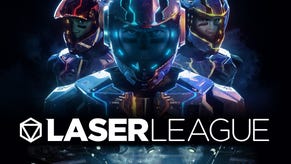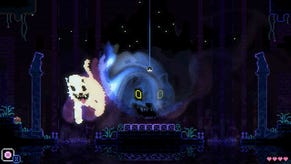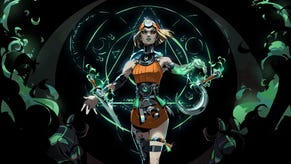Laser League review - an instant modern-day multiplayer classic
Major laser.
Forget the name, first off - it's the only foot developer roll7 really puts wrong in this, the latest from the team behind OlliOlli, and perhaps the studio's most ambitious project to date. Laser League invites awkward comparisons to Rocket League, and given how this is also a straightforward yet deceptively deep multiplayer experience, it's too easy to dwell on that. To make that assumption is to miss the point, though, and it sells what roll7's concocted here more than a little short.
This is a game born from the perfect black void of the early 80s arcade, from the rowdy showfloor of the modern-day indie showcase and, at its very heart, from the crowded sofa of anyone who's ever loved playing games with friends by their side. This is multiplayer gaming executed with the scalpel-sharp design of a Tempest or a Missile Command.
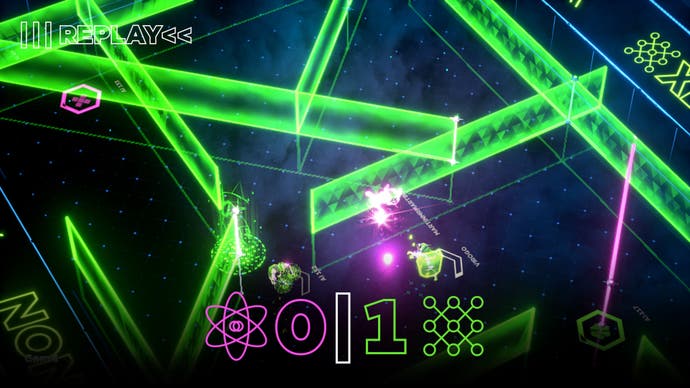
It's 2150, and you're partaking in a sport where small teams face off against each other in wraparound arenas, chasing down moving nodes that, when activated, project a wall of light that's the same colour as your squad. You can pass through it at will, though it'll down opposing members, eliminating them until they're revived by a teammate. When everyone's down you score a point - and the winner is declared after a set of three short matches.
That's the rule book in its driest form, but it's what it enables where you'll find the real fun. You're the last member of your team standing, say, a field full of dancing laser death standing between you and your downed teammates. There's a perfect path that can be threaded between each lethal wall, a feat of co-ordination worthy of any great shmup, but you'll have to do so with a team of three rivals bearing down on you. On the way you might pick up the power-up that's currently in play, too, one that will switch the polarity of every node in play, for example, turning that fatal field friendly in one movement - and so you do, and so you win, and so you realise how very special Laser League can be.
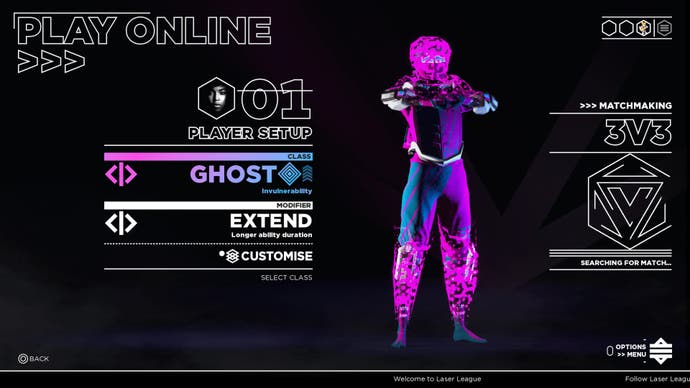
And that's Laser League told in only its simplest terms. Slight elements conspire together to forge significant complexity; there's a class system complete with class-specific modifiers, so that your Blade can recharge its ability upon a successful kill, allowing adept players to chain together a complete team wipe. Which might tempting, but it requires some serious skill to pull off properly - better off, perhaps, playing as a Thief with their ability to steal active nodes. Or how about playing as Shock, incapacitating enemies and letting inbound lasers finish them off? Even better, why not work with a well-balanced team, all working in harmony to shut down the field and the opposition in a co-ordinated display of dominance.
Dig deep and it sounds complicated, but Laser League remains a brilliantly simple game. You move with one stick and activate your ability with one of the shoulder buttons - a moveset so bluntly straightforward it's perfectly possible to play with one hand. And that's kind of the point - this is a game that's designed to be played with a beer in one hand, the controller in the other. It's perfectly social, and you don't have to possess a complete understanding to be able to enjoy the thrilling risk/reward of racing head-on with another player in a last-ditch attempt to activate a node.
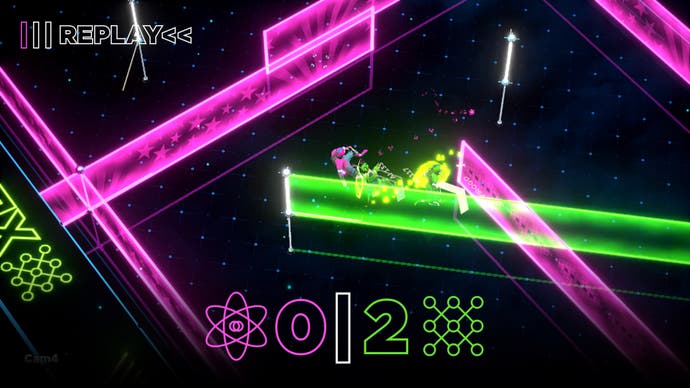
If simplicity is one of Laser League's strong suits, so too is its ability to build on that in meaningful ways. There's even a slight dissonance in how a game whose heart seems to be placed somewhere near the sticky floors of backroom bars is so lavishly presented, a little Designers Republic flair in its coherent vision of a slickly produced future sport. That extends to its - admittedly slight - online feature set, with the pull of a progression system tied into cosmetic unlocks almost making up for the lack of proper ranked online play.
And if Laser League can seem a slight game - there's nothing much beyond the tutorial for solo pursuits, while the online modes only really extend to catering for matches of two-on-two or three-on-three - it is also one of considerable depth. Here, simple things work together to conjure up surprising consequences - and, more often than not, thrilling ones too. It's rare to play something so pure, a multiplayer game with modern sensibilities and yet one that feels like it was forged in the fire of older arcade classics. If there's any justice, Laser League is a game that'll find its place among those greats.
